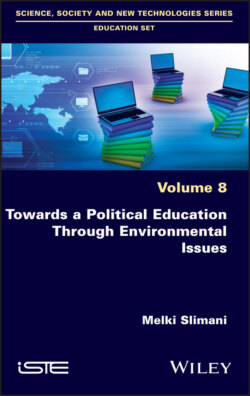Читать книгу Towards a Political Education Through Environmental Issues - Melki Slimani - Страница 21
1.3.3. Sustainable development issues
ОглавлениеThe prospect of sustainable development suggests the need to integrate environmental and equity issues with economic growth so as to preserve what is at stake with sustainable development. Hopwood et al. (2005) proposed an analytical framework for the different political positions taking place in debates on sustainable development. To do so, the authors used two analytical variables: justice on the one hand and environmental values on the other. They distinguish between two opposing approaches or points of view: the status quo and the transformative viewpoint and another intermediary, which is the reformist approach.
According to Hopwood et al. (2005), the status quo perspective assumes that sustainable development requires adjustments that do not require a genuine change to means of decision-making or power relations. Generally, positions that support this view (ecological modernization, green consumption, green economy, natural resource management, etc.) advocate the primordial role of the market in sustainable development. This is “green” capitalism practicing corporate citizenship.
The transformist viewpoint corresponds to a heterogeneous set of trends (social ecology, ecofeminism, ecosocialism, etc.) but share the same point of view, which assumes that environmental and social crises are interconnected and that social and environmental systems risk collapse crises in the absence of radical change (Hopwood et al. 2005).
Social ecology presupposes a dialectical relationship between humanity and nature. This leads to considering that environmental concerns must be rooted in social criticism by aiming to achieve radical social reconstruction.
Ecofeminism advances the relationship between environmental degradation and the subordination of women. This trend runs parallel to ecosocialism by assuming that capitalism attempts to detach social life from nature through its class and gender-dividing politics.
Based on the writings of Marx and Engels, ecosocialism establishes a link between environmental damage and capitalism‘s exploitation of people and the environment. Ecosocialists argue that changes in the material conditions and social structure of society are necessary to overcome both environmental crises and injustice.
The reformist point of view is supported by several government agencies and non-governmental organizations such as Greenpeace and Friends of the Earth. Reformers identify a key role for governments in sustainable development’s assumption that reform of the political system, as an anchor for democracy and participation, plays a role in sustainable development (Hopwood et al. 2005).
This point of view is based on the observation that inequalities in development, which are a major cause of the crisis of sustainability facing the world at the beginning of the 21st century, are also at the root of ecological inequalities woven by economic power relations. Indeed, calculations of the ecological footprint show that “citizens of rich countries need an average of 4–10 global average hectares (10–25 acres) to support their lifestyles, whereas the poor get by on less than half a hectare (one acre)” (Rees 2008, p. 694). This issue of unequal development is further branched out to evoke territorial inequalities, inequalities in access to basic goods, inequalities in the face of risk and power inequalities (Chaumel and La Branche 2008). Inequalities in human development are considered causes that increase environmental degradation and consequently weaken ecosystems through deforestation and the loss of biodiversity resulting from the actions of the beneficiaries of their services (Laurent 2009).
